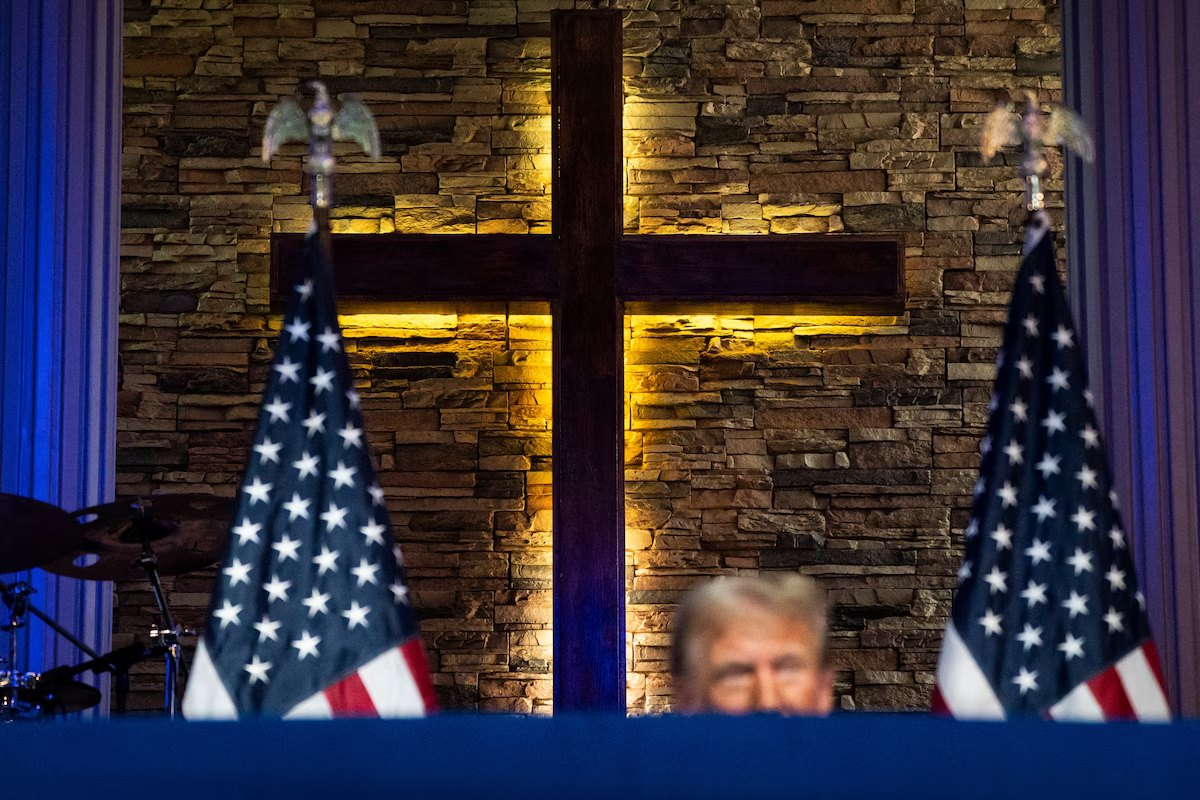The Internal Revenue Service has taken a drastic turn, opening the floodgates for political donations to flow into churches without the fear of losing their tax-exempt status. This radical shift poses a critical threat to the very fabric of American evangelical churches, which are struggling to retain congregants amid a growing backlash against politicized worship.
IRS Policy Shift Encourages Political Exploitation
The IRS decision, which loosens restrictions on political campaigning, is seen as a boon for churches eager to capitalize on the lucrative world of political donations. As reported by the IRS, this change could turn houses of worship into fundraising hubs for political candidates, undermining the core mission of spiritual guidance.
Evangelical Decline Linked to Political Overreach
According to Salon columnist Amanda Marcotte, the embrace of Trump-era politics has already led to significant losses in church membership. This phenomenon, known as "dechurching," highlights a growing disillusionment among younger generations who are increasingly turned off by the intertwining of political advocacy with religious practice.
Churches that once preached the teachings of Jesus are now at risk of becoming mere platforms for political rhetoric. The shift toward political engagement may alienate those who seek a sanctuary from the divisive political landscape, further accelerating the decline in participation among younger people.

Worship Night with City Alight in Orange, NSW - 24 Aug, 2024 ...
Money Talks, Spirituality Walks
The new IRS rules provide a powerful incentive for wealthy donors to funnel cash through churches, where their contributions will be tax-deductible. This could lead to a troubling trend where churches prioritize political agendas over spiritual needs. Research shows that when economic interests dominate political spheres, the voices of marginalized communities are often drowned out.
As Marcotte warns, pastors will face mounting pressure to deliver results for their financial backers. This could steer them away from addressing the spiritual and community needs of their congregants, leading to an exhausting environment where church services feel less like worship and more like political rallies. For many, the question remains: why attend a church that serves as a platform for political ads?
Youth Exodus from Evangelical Spaces
The statistics are alarming. Pew Research indicates that only 47% of Americans were church members by 2020, a decline that reflects broader societal shifts away from traditional religious affiliations. The rising "exvangelical" movement embodies this trend, with many disillusioned individuals leaving their churches due to perceived racism, homophobia, and other right-wing ideologies. As reported by Pew data, this cumulative decline has been ongoing for decades.
Churches that choose to double down on political engagement may find themselves losing their most valuable asset: their people. The younger generation increasingly seeks spaces that align with their values of inclusivity and social justice, rather than partisan politics.

IRS says churches should be allowed to make political ...
Impacts on Community and Social Justice
The consequences of this shift extend beyond individual congregations. By transforming churches into political machinery, we risk undermining social justice efforts that are vital for communities in need. As historical analyses of the church-state relationship indicate, the politicization of faith can create divisions that erode communal ties.
The merging of faith and political ambition can lead to a neglect of critical social issues, from poverty to racial injustice. As churches prioritize political campaigns, the spiritual mission to uplift marginalized voices may become secondary, further entrenching systemic inequalities.




![[Video] Pope Leo XIV condemns anti-Christian violence in Nigeria, Bangladesh, and Damascus](/_next/image?url=%2Fapi%2Fimage%2Fthumbnails%2Fthumbnail-1768006244320-mmtpte-thumbnail.jpg&w=3840&q=75)


![[Video] Gunfire between Iraqi security forces and Sadr militias in Baghdad](/_next/image?url=%2Fapi%2Fimage%2Fthumbnails%2Fthumbnail-1768343508874-4redb-thumbnail.jpg&w=3840&q=75)
